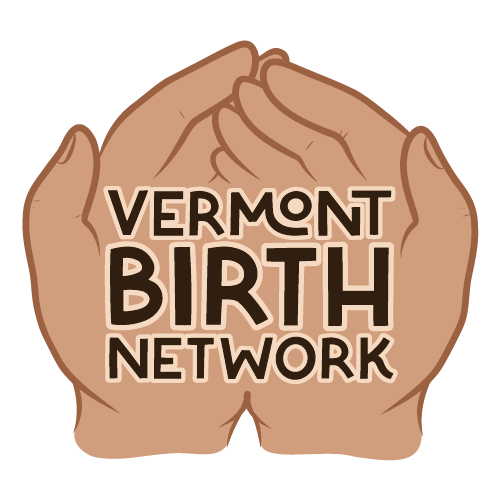
Lactation Support
A lactation support professional specializes in helping individuals with breast/chestfeeding, bottle feeding, lactation-related issues. They have specialized training and expertise in providing support and guidance to parents and helping them overcome challenges they may face during the feeding journey.
International Board Certified Lactation Consultants (IBCLC)
-

Ashley Norris
-

Kristin Martins
-

Lisa Velasquez Kerns
-

Kimberleigh Weiss-Lewit
Lactation Counselors & Educators
-

Rachael Gelineau
-

Dani Krawiec
-

Hannah Pfeil
-

Vermont Doula Company
-

Sage Willow Midwifery & Wellness

Search by Location
Frequently Asked Questions
-
Here are some of the key roles and responsibilities of a lactation consultant:
Assessment: Lactation consultants assess the feeding process by observing and evaluating how the baby latches onto the lactating person, the milk supply, and the overall feeding experience. They may also assess the baby's weight gain and growth.
Education: They provide education to parents about proper breast/chestfeeding techniques, positioning, and latch. They also educate parents about common feeding challenges and how to overcome them. Lactation consultants can help with pumping and milk storage education. Some lactation consultants also offer bottle-feeding education for those who feed their babies with pumped milk or formula.
Problem-Solving: Lactation consultants assist with troubleshooting and solving feeding problems, such as nipple pain, engorgement, low milk supply, and issues related to infant oral ties, such as tongue-ties or lip-ties.
Support: They offer emotional support and encouragement to parents, as feeding, especially human milk feeding, can be physically and emotionally demanding. Lactation consultants help parents build confidence in their abilities.
Specialized Care: Some lactation consultants specialize in working with specific populations, such as parents of premature infants, multiples (twins or triplets), or babies with special medical needs.
Continued Support: Lactation consultants often offer ongoing support through follow-up consultations or phone/email support to ensure that feeding is successful and comfortable for both the parent(s) and the baby(s).
Advocacy: In some cases, the lactation consultant may advocate for the rights of feeding parents in healthcare settings, workplaces, and public spaces, helping to ensure that parents have the support and accommodations they need to feed successfully.
Lactation consultants typically have certification from organizations such as the International Board of Lactation Consultant Examiners (IBLCE or IBCLC) or other relevant certifications, depending on their country of practice. They work collaboratively with other healthcare providers, such as pediatricians, obstetricians, and nurses, to ensure that parents receive comprehensive care and support.
Overall, lactation consultants play a crucial role in promoting and supporting feeding. Their expertise is invaluable in helping parents navigate the challenges and joys of feeding their infants.
-
Insurance coverage for lactation consultants can vary widely depending on your insurance plan, location, and the specific circumstances of your situation. However, many insurance plans in the United States do offer some level of coverage for lactation consultant services, thanks to the Affordable Care Act (ACA).
Under the ACA, insurance plans are required to cover certain preventive services with no cost-sharing, and this includes feeding support and counseling provided by trained lactation consultants. Here are some key points to keep in mind:
In-Network Providers: To maximize insurance coverage, it's advisable to seek services from lactation consultants who are in-network providers for your insurance plan. Using out-of-network providers may result in higher out-of-pocket costs.
Prescription Requirement: Some insurance plans may require a prescription from a healthcare provider (such as a doctor or midwife) for lactation consultant services. Check with your insurance company to understand their specific requirements.
Coverage Limits: While insurance plans are required to cover lactation consultant services, there may be limitations on the number of visits or the duration of coverage. It's essential to check your plan's details to understand the extent of your coverage.
Types of Providers: Lactation consultant services may be covered when provided by certified lactation consultants (IBCLCs) or other qualified healthcare professionals, depending on your insurance plan's policies.
Documentation and Billing: Proper documentation and billing by the lactation consultant are crucial for insurance reimbursement. Ensure that the consultant is aware of your insurance requirements and can provide the necessary documentation.
Medicaid: In Vermont, Medicaid programs also cover lactation consultant services, but coverage is only available for providers that are in-network with Medicaid. Be sure to check before scheduling, any lactation consultant should be able to tell you if they accept Medicaid insurance.
To determine your specific coverage for lactation consultant services, you should:
Contact your insurance provider: Call the customer service number on your insurance card to inquire about your plan's coverage for lactation support services.
Review your plan documents: Read through your insurance plan's documents, including the summary of benefits and coverage (SBC) and any related policy documents. This will provide details about the coverage offered for lactation consultants.
Consult your healthcare provider: Your healthcare provider, such as your obstetrician or pediatrician, may be able to provide guidance on accessing lactation consultant services through your insurance.
Keep in mind that while insurance coverage for lactation consultants is becoming more common, it's essential to be proactive in understanding your specific plan's coverage and requirements to avoid unexpected out-of-pocket expenses.
-
Lactation consultants come from various backgrounds and may have different certifications or qualifications. Here are some of the common types of lactation consultants:
International Board-Certified Lactation Consultant (IBCLC): IBCLCs have completed extensive training and clinical experience, followed by a rigorous exam administered by the International Board of Lactation Consultant Examiners (IBLCE). IBCLCs are qualified to assess and manage a wide range of breast/chestfeeding challenges and provide comprehensive lactation care. IBCLCs are the most likely care providers to be covered by insurance.
Certified Lactation Counselor (CLC): CLCs have completed training and certification through the Academy of Lactation Policy and Practice (ALPP) or another accredited organization. They are qualified to provide basic feeding support, education, and counseling.
Certified Breastfeeding Specialist (CBS): Certified Breastfeeding Specialists have undergone specialized training and certification through organizations like Lactation Education Resources (LER) or other recognized programs. They can offer breastfeeding support and education but may have a narrower scope of practice compared to IBCLCs.
Registered Nurse (RN) Lactation Consultant: Some registered nurses pursue additional training and certification in lactation to become RN Lactation Consultants. They can provide breast/chestfeeding support within their nursing scope of practice.
Peer Counselors: Peer counselors are often individuals who have personal feeding experience and receive training to provide support and guidance to other breastfeeding parents. They may work in community-based programs such as La Leche League or hospitals to offer peer-to-peer support.
Physician Lactation Consultants: Some medical doctors, particularly pediatricians or family medicine physicians, undergo additional training and certification in lactation management. They can provide support as part of their medical practice.
Doula with Lactation Training: Some birth doulas or postpartum doulas may have received additional training in lactation support. While not necessarily certified lactation consultants, they can offer basic feeding guidance and assistance.
It's important to note that the level of expertise and the range of services provided can vary among lactation consultants based on their training and qualifications. IBCLCs are generally considered the most highly trained and versatile in managing complex breastfeeding issues. However, the specific consultant you choose should align with your individual needs and preferences, as well as any medical or lactation challenges you may be experiencing. Always verify a consultant's credentials and qualifications before seeking their services.
Disclaimer
The Vermont Birth Network acknowledges that it does not independently verify credentials, licenses, or certifications of its members. While the network strives to provide accurate and up-to-date information about its members' qualifications, it relies on individuals to self-report their credentials. Therefore, users of the Vermont Birth Network are encouraged to independently verify the professional qualifications of members to ensure that they meet the necessary standards and requirements for their respective fields.
The Vermont Birth Network serves as a voluntary listing platform for individuals who have consented to and paid for inclusion. It is important to note that membership in the network is not comprehensive, and it does not encompass every professional within the state of Vermont who may be qualified to provide services related to perinatal care.
